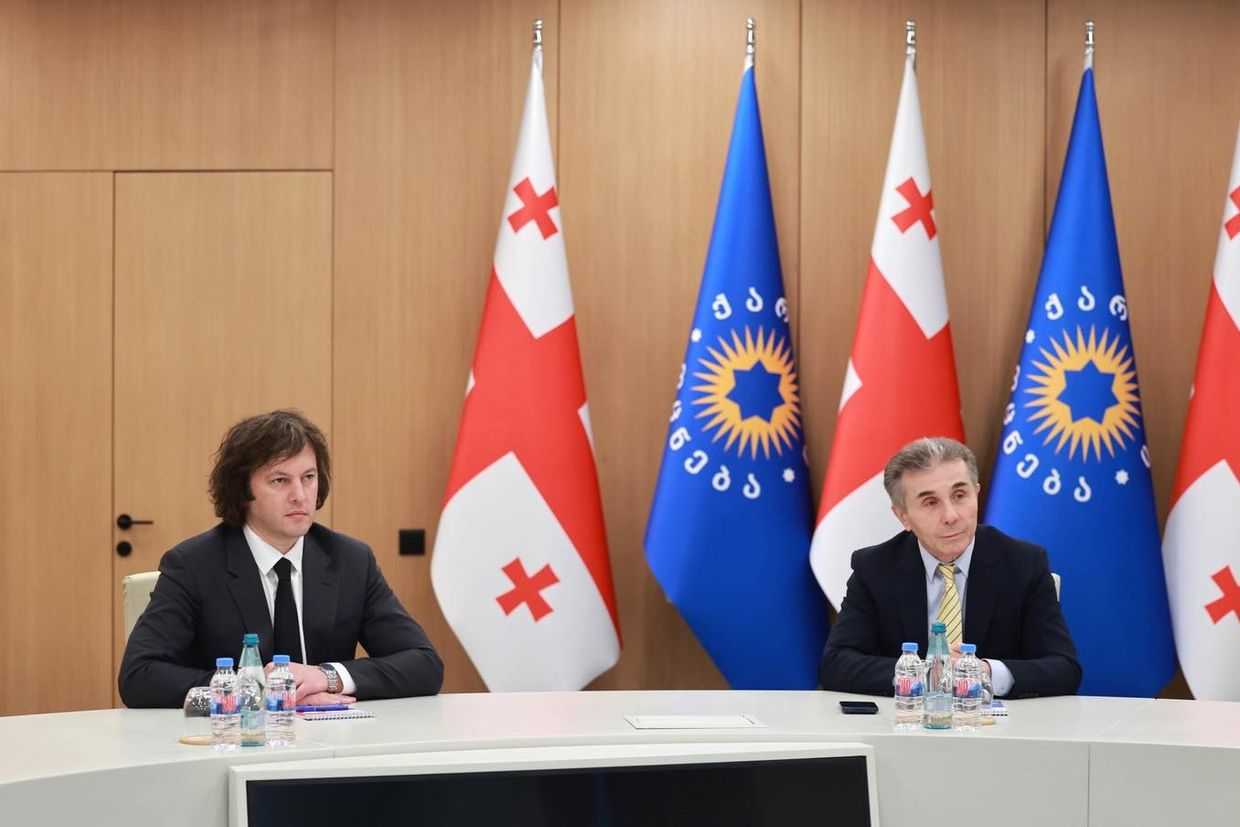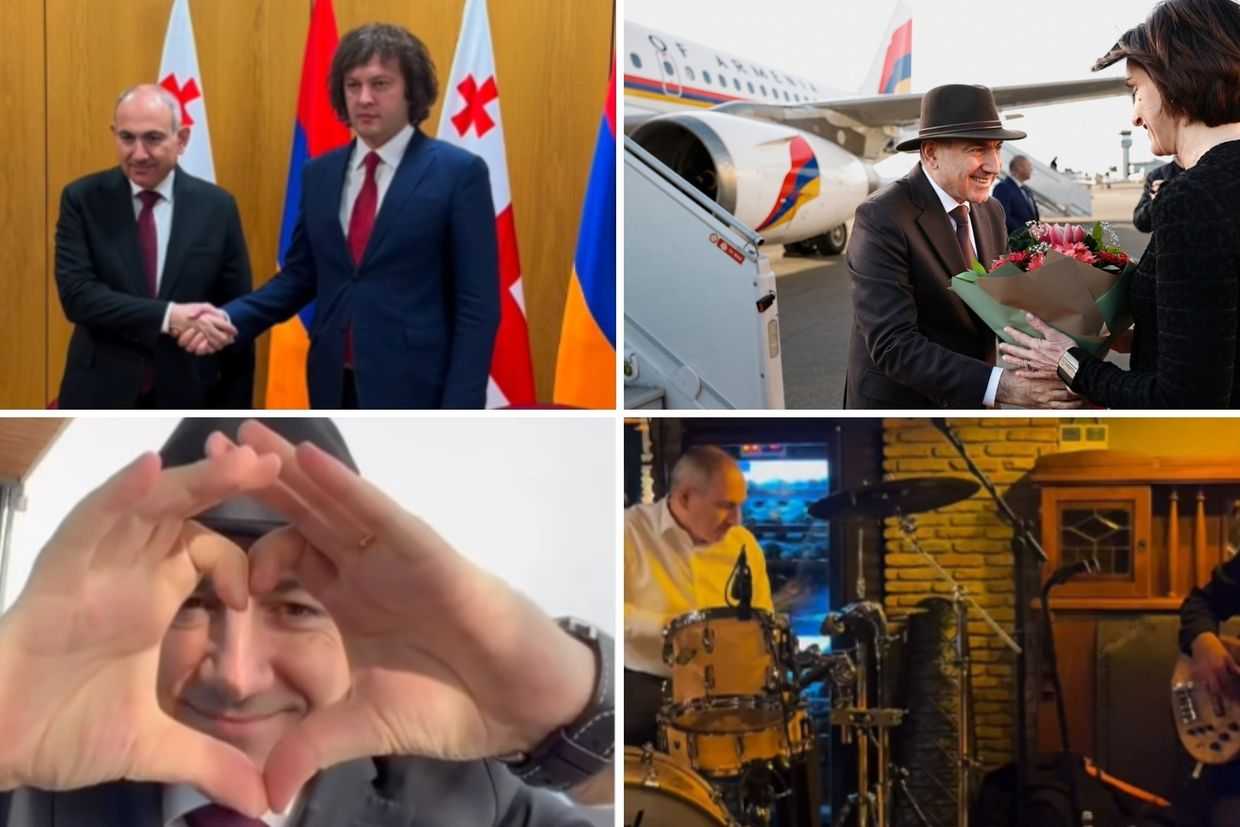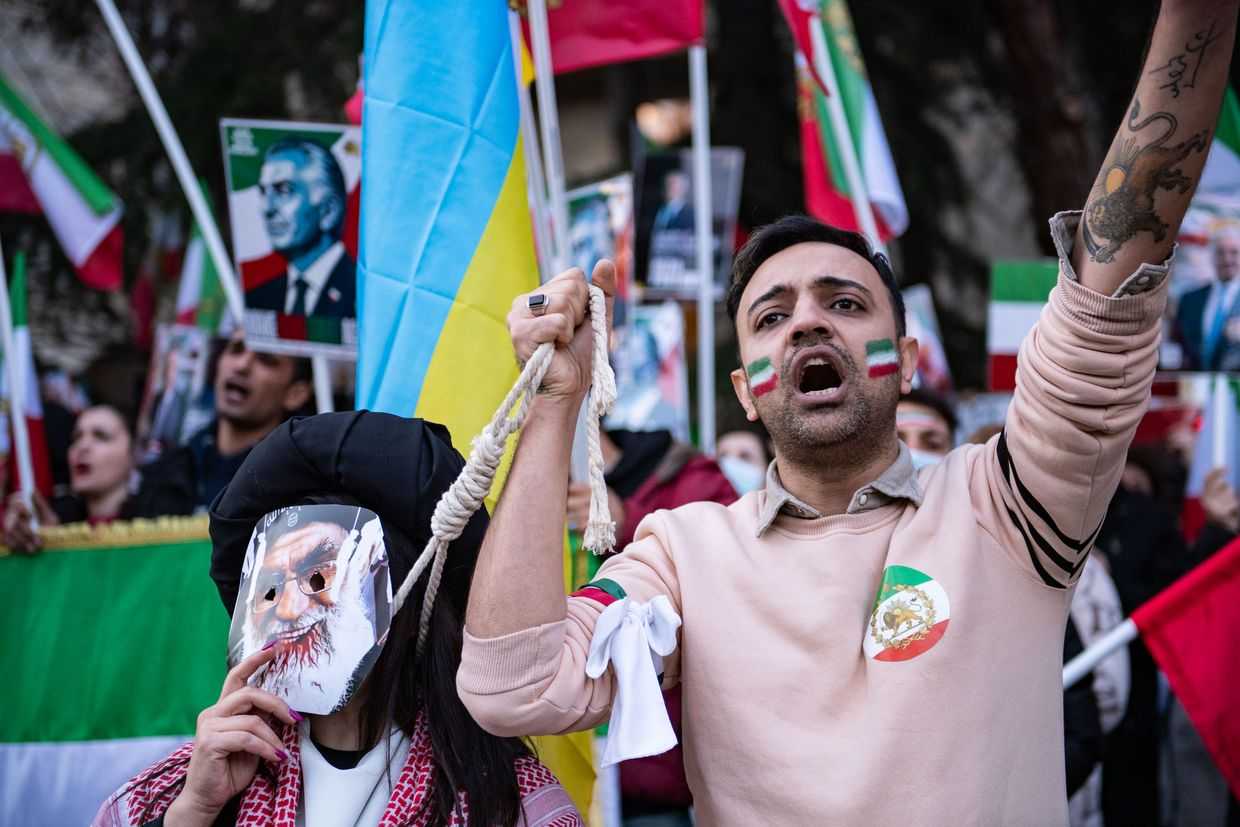
Georgia’s Prime Minister described last week’s foreign agent law protests as a ‘big conspiracy’, accused young people of having been manipulated, and described police actions against protesters as ‘faultless’ in an interview on Sunday.
In his first extensive commentary since the ruling Georgian Dream party yielded to street demonstrations and dropped the ‘foreign agent’ draft law, Georgian Prime Minister Irakli Gharibashvili praised the Interior Ministry for ‘perfectly planning and executing’ its actions against protesters in Tbilisi.
Large protests erupted on 7 March after Georgian Dream majority MPs rushed the controversial law through its first hearing ahead of schedule.
The resulting political crisis centred on two days of overnight protests, in which riot police used water cannons, tear gas, and sound cannons against the tens of thousands gathered to protest the law. It subsided on 10 March, when the ruling party formally withdrew the draft bill.
In a Sunday interview with pro-government TV channel Imedi, Gharibashvili defended the law, attacked its detractors, and denied that the bill on ‘transparency of foreign influence’ was a ‘Russian law’.
Gharibashvili also appeared to confirm suspicions that the law that his party had fiercely supported was intended to target specific civil society organisations. He insisted the public needed ‘to know more’ about the finances and activities of ‘destructive’ groups like Shame, Tbilisi Pride, the Social Justice Centre, and ISFED.
‘Perfect’ protest management
The Prime Minister focused on how well he believed his government had handled the demonstrations, both in terms of forceful crowd management and in a broader political context.
Gharibashvili claimed that by backtracking on the controversial law, the Georgian Dream government had shown that they would not allow anyone to ‘organise destabilisation’, ‘introduce chaos’, or open a ‘second front’ in Georgia.
[Read more: Russia’s top diplomat compliments Georgia for not ‘irritating’ them]
He went on to characterise the protests as a ‘big conspiracy’, before implying that the demonstrations’ organisers would have been ready for ‘several young people’ at the rallies to die, in order to undermine peace and stability in the country.
Despite Georgia’s Special Investigation Service launching a probe into possible use of excessive power by police against protesters and journalists, with human rights organisations making similar claims, Gharibashvili called such a possibility ‘a lie and nonsense’ and insisted his government had shown a ‘humane face’ in its handling of the protests.
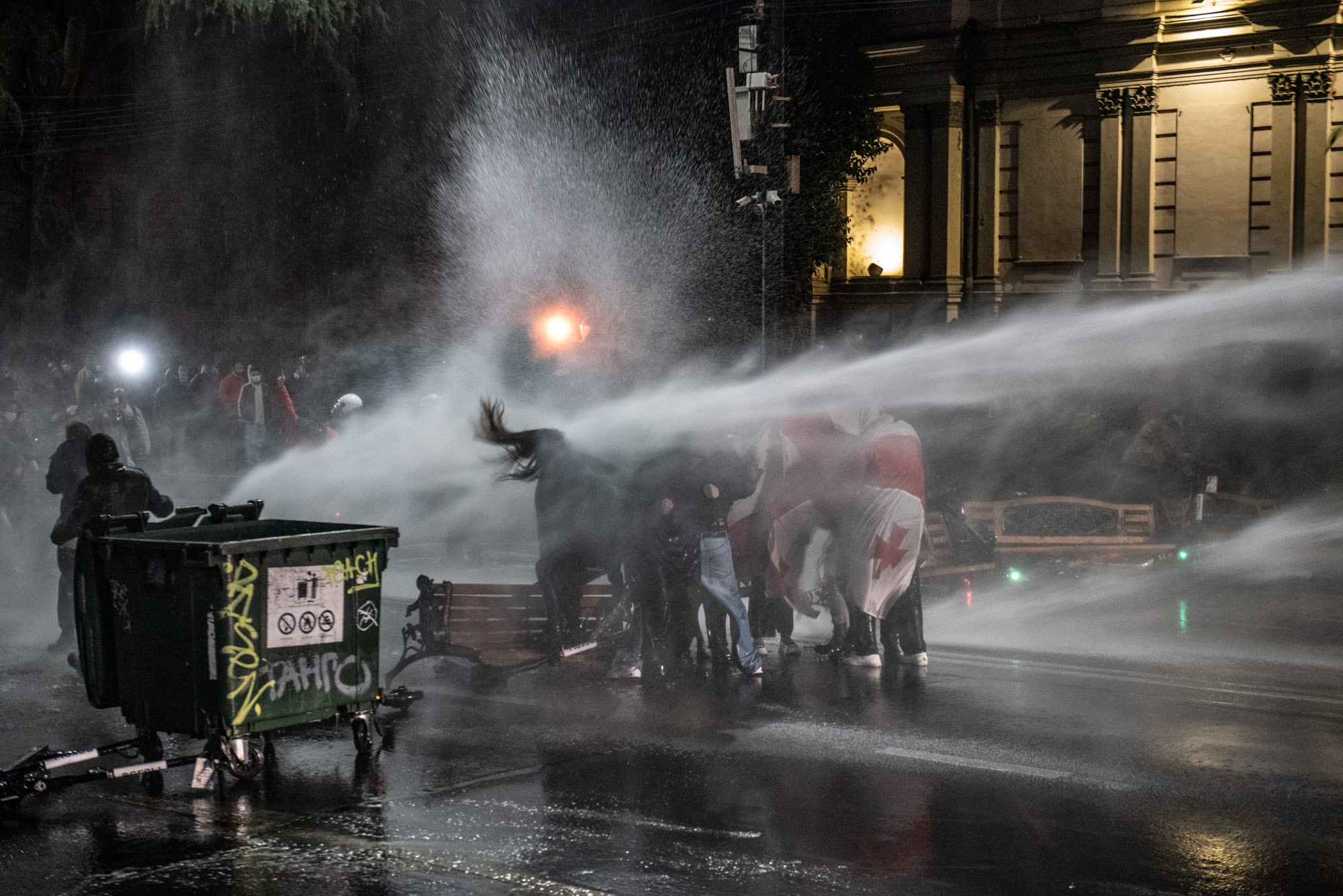
In contrast, Georgia’s Public Defender Levan Ioseliani today stated that the police had begun warning protesters about using force against them on 7 March while the gathering was peaceful, going on to use force in a ‘completely illegitimate manner’ against the protesters.
According to Ioseliani, while police used legitimate force against those trying to remove barriers from the Parliament building the following day, they also used force and crowd-control measures ‘when there was no such necessity’.
Hours before the Georgian Prime Minister’s interview, 10 local rights groups called on law enforcement agencies to void administrative cases and fines against 169 persons detained at street demonstrations against the foreign agent law.
Gharibashvili described the young protesters, widely credited with being a driving force in the rallies, as having been manipulated by ‘loser’ politicians. He also accused young members of the United National Movement, Girchi — More Freedom party, and the Franklin Club — a libertarian educational group in Tbilisi — of provoking conflict by engaging in violence against riot police.
‘I saw images of several of them’, said Gharibashvili of Franklin Club members. ‘I was surprised. They wore some kind of Satanist uniforms’.
‘Repeating Russian propaganda’
Prime Minister Irakli Gharibashvili also used the interview to criticise Ukraine’s President Volodymyr Zelensky for finding time in a time of war to make a statement supporting a ‘several thousand strong, destructive rally’ in Tbilisi.
He claimed it was ‘direct proof’ that Zelensky was ‘involved’ in and ‘motivated’ for ‘something to happen here too’, in an apparent reference to theories propagated by the ruling party that Ukraine has been attempting to push Georgia into war with Russia.
On 9 March, Zelensky thanked Georgians for waving Ukrainian flags and playing the Ukrainian national anthem during the protests, and wished Georgia ‘democratic success, success in Europe’.
Gharibashvili insisted that Georgia was ‘two or three times ahead’ of Moldova and Ukraine, apparently in terms of securing EU membership, and that the EU had ‘punished’ Georgia by denying the country candidate status last summer.
He went on to claim that Georgia should receive candidate status by the end of the year. In recent months, commentators within and outside of Georgia have raised concerns that the Georgian government has not made progress on the 12 recommendations set by the EU for Georgia’s candidate status to be reconsidered.
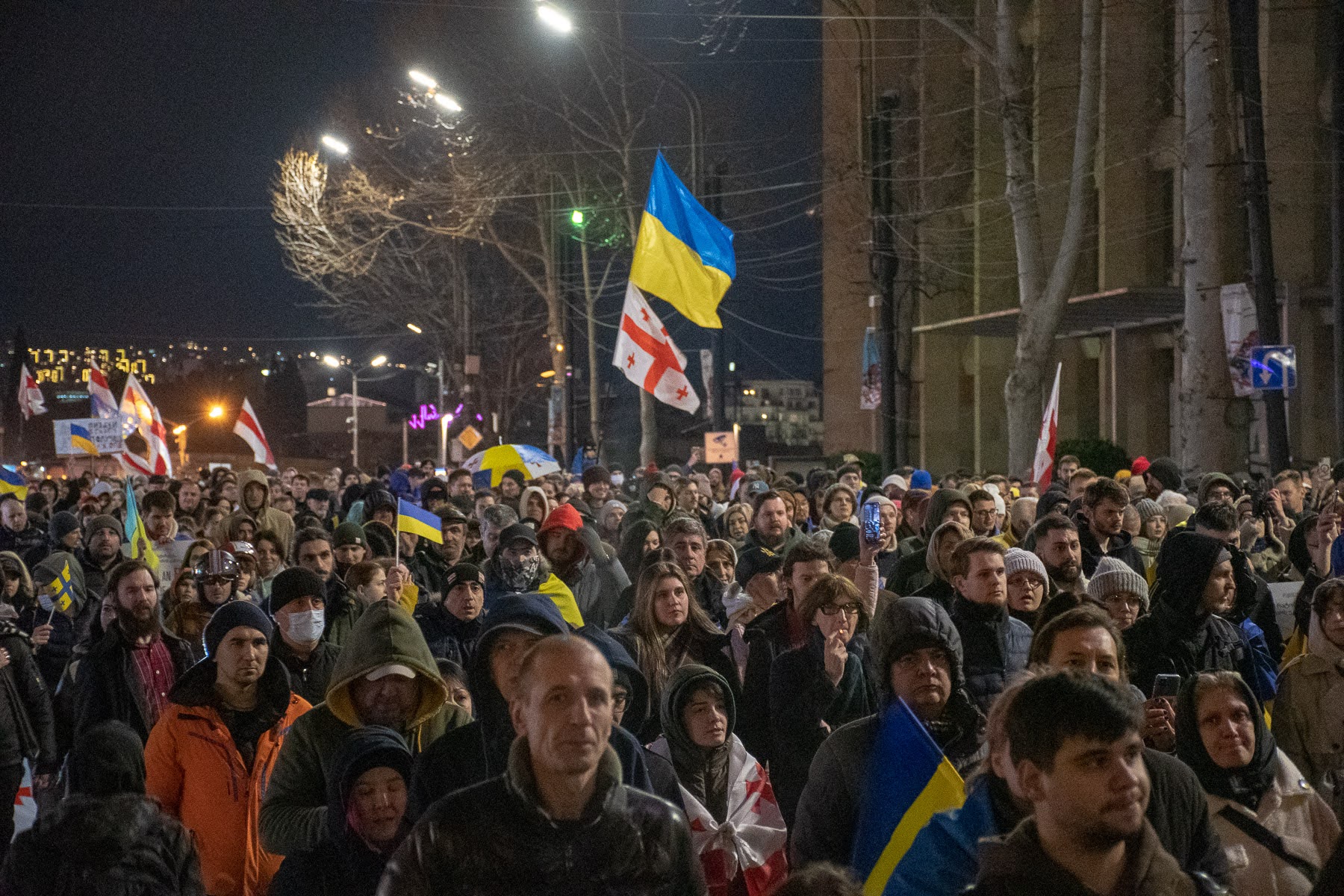
In Sunday’s interview, Gharibashvili also criticised Georgian combatants who had fought against Russia in Ukraine for participating in the recent rallies and warned them against being dragged into a ‘dirty provocation’.
The Georgian Prime Minister went on to accuse Georgia’s ‘foreign partners, colleagues, [foreign] ambassadors’ of making statements against the foreign agent draft law that ‘confused’ the Georgian public.
‘We saw a well-coordinated activity here’, he added.
Gharibashvili rebuked members of the European Parliament, without mentioning any by name, for ‘calling on a need for a regime change and overthrowing the government’.
He also reprimanded the European Parliament for their 15 February resolution calling on Georgian authorities to pardon the imprisoned Georgian ex-president Mikheil Saakashvili to allow him to leave Georgia for treatment.
Gharibashvili insisted the resolution showed that ‘Saakashvili is their agent’.
‘It’s better if the European Parliament takes care of its business. 100 MEPs are embroiled in a corruption scandal. Why are they preaching to us?’ Gharibashvili demanded.




